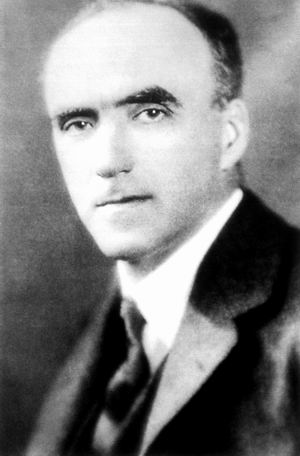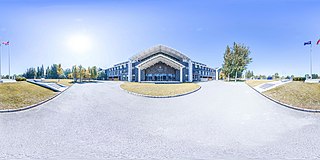Related Research Articles

Nanjing, alternatively romanized as Nanking, is the capital of Jiangsu province of the People's Republic of China. It is a sub-provincial city, and a megacity. The city has 11 districts, an administrative area of 6,600 km2 (2,500 sq mi), and a population of 9,423,400 as of 2021. Situated in the Yangtze River Delta region, Nanjing has a prominent place in Chinese history and culture, having served as the capital of various Chinese dynasties, kingdoms and republican governments dating from the 3rd century to 1949, and has thus long been a major center of culture, education, research, politics, economy, transport networks and tourism, being the home to one of the world's largest inland ports. The city is also one of the fifteen sub-provincial cities in the People's Republic of China's administrative structure, enjoying jurisdictional and economic autonomy only slightly less than that of a province. Nanjing has been ranked seventh in the evaluation of "Cities with Strongest Comprehensive Strength" issued by the National Statistics Bureau, and second in the evaluation of cities with most sustainable development potential in the Yangtze River Delta. It has also been awarded the title of 2008 Habitat Scroll of Honor of China, Special UN Habitat Scroll of Honor Award and National Civilized City. Nanjing is also considered a Beta city classification, together with Chongqing, Hangzhou and Tianjin by the Globalization and World Cities Research Network, and ranked as one of the world's top 100 cities in the Global Financial Centres Index.
Harold John Timperley (1898–1954) was an Australian journalist, known for his reporting in China in the 1930s and for authoring the book What War Means (1938) based on it. Historian Hora Tomio described What War Means as "a book which shocked awake Western intellectuals".

John Leighton Stuart was a missionary educator, the first President of Yenching University and later United States ambassador to China. He was a towering figure in U.S.-Chinese relations in the first half of the 20th century, a man TIME magazine called "perhaps the most respected American in China." According to one Chinese historian, "there was no other American of his ilk in the 20th century, one who was as deeply involved in Chinese politics, culture, and education and had such an incredible influence in China."

The Nanjing Metro is a rapid transit system serving the urban and suburban districts of Nanjing, the capital city of Jiangsu Province in the People's Republic of China.

The Hopkins–Nanjing Center, formally the Johns Hopkins University–Nanjing University Center for Chinese and American Studies, is an international campus of the Paul H. Nitze School of Advanced International Studies and a joint educational venture between Johns Hopkins University and Nanjing University that opened in Nanjing, China, in 1986. Former Hopkins President Steven Muller and former NJU President Kuang Yaming worked together to create the center, recognizing the importance of improved understanding and relations between their respective countries. Muller believed China to be "the country of the future."
Chinese Lessons: Five Classmates and the Story of the New China (ISBN 0805086641) recounts John Pomfret's experiences and perspectives about the then opening China during his attendance of Nanjing University in 1980, during one of the first student exchange programs between the United States and China. The book received positive reviews in major American newspapers, such as The New York Times. It is widely read among the ethnic Chinese community in the United States.

Guo Jinlong is a Chinese politician, who served as the Vice Chairman of the Central Guidance Commission on Building Spiritual Civilization, and was a member of the Politburo of the Chinese Communist Party. Between 2008 and 2012 Guo served as the Mayor of Beijing, and Communist Party Secretary of Beijing between 2012 and 2017. As the Mayor of Beijing during the 2008 Olympics, Guo served as the executive chairman of the Beijing Organizing Committee for the Olympic Games (BOCOG).

The No.80 High School of Beijing, founded in 1956, is a high school in Chaoyang District, Beijing and the beacon high school of the district. It has more than 3000 junior and senior high school students. The $60 million Wangjing campus covers 9.4 hectares, making it one of the largest high school campuses in Beijing. A majority of its high school students are boarding students.

Beijing, alternatively romanized as Peking, is the capital of the People's Republic of China. With over 21 million residents, Beijing is the world's most populous national capital city as well as China's second largest city after Shanghai. It is located in Northern China, and is governed as a municipality under the direct administration of the State Council with 16 urban, suburban, and rural districts. Beijing is mostly surrounded by Hebei Province with the exception of neighboring Tianjin to the southeast; together, the three divisions form the Jingjinji megalopolis and the national capital region of China.

Harrow International School Beijing (HISB) (Chinese: 北京哈罗英国学校), or Harrow Beijing (HBJ), is a private school located in Chaoyang District, Beijing.
The Nanjing dialect, also known as Nankingese, Nanjingese and Nanjing Mandarin, is the prestige dialect of Mandarin spoken in the urban area of Nanjing, China. It is part of the Jianghuai group of Chinese varieties.

Education in Beijing includes information about primary and secondary schools in Beijing.

"Beijing" is from pinyin Běijīng, which is romanized from 北京, the Chinese name for this city. The pinyin system of transliteration was approved by the Chinese government in 1958, but little used until 1979. It was gradually adopted by various news organizations, governments, and international agencies over the next decade.
Qu Qinyue is a Chinese astrophysicist and writer. He is a professor and former president of Nanjing University. He is a pioneer of high-energy astrophysics in China, and his research mainly focuses on pulsars, neutron stars, X-ray sources, γ-ray sources and quasars. In 1980 he was elected a member of the Chinese Academy of Sciences.

Yang Weize is a former Chinese politician. He was the Communist Party Secretary of Nanjing, capital of Jiangsu Province, from 2011 to 2015. Prior to that, he served as the party secretary in the neighbouring city of Wuxi for seven years, and before that the Mayor of Suzhou. In 2015, Yang was put under investigation for corruption by the Central Commission for Discipline Inspection. He was tried and convicted on corruption charges and sentenced to twelve years and six months in prison in December 2016.
Lü Xiwen is a Chinese politician who served as the Deputy Communist Party Secretary of Beijing between 2013 and 2015, and prior to that, the head of the Organization Department of the Beijing Party Committee. She was investigated for corruption in 2015, and later expelled from the Communist Party.
Chen Gang is a former Chinese politician. Best known for his term in Beijing beginning in 2006, Chen played a prominent role in the construction of the venues of the Beijing Olympics and subsequent urban development projects. Elevated to the municipal standing committee in 2012, Chen seemed destined for higher office. However, he was abruptly moved to the North-South Water Transfer project in 2017. He was disgraced in 2019 and currently under investigation for graft.
Ichisada Miyazaki was a Japanese historian specializing in Chinese history. He represents the second generation of the Kyoto school founded by his teacher Naitō Konan.

Xinfadi Market is a covered wholesale food market in the southern Beijing district of Fengtai. As of 2020, the market provides more than 90% of Beijing's fruits and vegetables according to state media. Seafood and meat are also sold at the market. Vendors distribute produce from Xinfadi to many smaller markets in Beijing. It is nicknamed the "vegetable basket" and "fruit bowl" of the city.
References
- ↑ "Pomfret, John". viaf.org . Retrieved 15 November 2020.
- ↑ 北京市地方志编纂委员会 (1990). 北京年鉴1990 (in Chinese). 中国城市出版社.
- ↑ Alicia Patterson Journalism Fellowship
- ↑ "John Pomfret's "The Beautiful Country and the Middle Kingdom" Wins 2017 CFR Arthur Ross Book Award". Council on Foreign Relations. November 15, 2017. Retrieved December 23, 2017.
- ↑ Joseph Kanon (2021-10-20). "When the U.S. needed secret help in Iraq, who did it call? Poland, of course". The Washington Post . Washington, D.C. ISSN 0190-8286. OCLC 1330888409.
- ↑ Pomfret, John. Chinese Lessons: Five Classmates and the Story of the New China. New York: Henry Holt and Company, 2006.